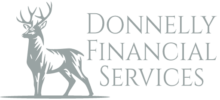If you’re in the fortunate position to be considering retirement, chances are you have a long track record of good financial decisions. Perhaps there’s a few you wish you had back as well. But, nonetheless, you’ve gotten yourself to the doorstep of financial independence. Now that you’re here, making this next leap may feel a little different from all the rest, and it should. Retirement kicks off a string of high-impact financial decisions that we have to make in a relatively short period of time. All of the sudden we’re faced with choices around pension elections, Medicare or private insurance coverage, Social Security benefits, and of course, responsibly managing our nest egg. Each of which carries significant weight in being able to maximize your retirement lifestyle. No pressure, right?
Retirement planning is all about looking ahead at the financial decisions you’ll be faced with, and determining the best strategy for each one. From there we piece these strategies together to create one cohesive plan that creates visibility and peace of mind. It’s about systematically turning unknowns into clarity. We get there by understanding the key considerations for each decision we’ll be faced with, and taking a practical approach to build a plan from the ground up.
Go-No-Go - Income Planning
If you’re going to jump out of an airplane, the first step is making sure your parachute is in perfect working order. The same goes for retirement. If we’re going to make the leap into retirement, we first have to have a baseline understanding of whether we can afford to. ‘Do I have enough money?’ tends to be one of the most common questions that a retirement planner will hear throughout their career. In order to answer that question for ourselves, we have to understand how much monthly income we’ll need, and whether our assets can support that amount. So that’s where we start.
The purpose of retirement income planning is to inform our ‘go-no-go’ decision. For those who initially may be unsure about their income needs, we can use some general principles to try and arrive at a fairly solid monthly number. For example, research shows that retirees tend not to stray very far from their pre-retirement budgets. Therefore, as a bare minimum, I recommend estimating monthly expenses of 80-100% of whatever amount was being spent pre-retirement. The expense calculation will obviously change for those who wish to travel extensively, or purchase a cash-intensive asset, and that should be taken into account with as much detail as possible. But, let’s say for argument’s sake we arrive at a number that we feel good about.
Once we have a good understanding of monthly expenses, we can then move to the other side of the equation to determine how your income sources will match up. This can be done by, first, tallying up any fixed income sources you will have at your disposal in retirement. By starting with fixed income sources, like pension benefits and social security, we will have a concrete foundation of guaranteed retirement income to build off of. After which, we’ll often find that fixed income sources, alone, are not enough to cover all retirement expenses. Or you may not have immediate access to sources like Social Security. In both cases, your retirement nest egg will be left to fill in the gaps.
This is where things can get tricky. We have to be very careful about how much income we take from our retirement investments, especially in the early years. Enlisting the help of a financial planner can be very valuable when it comes to this aspect of retirement planning. The role of a financial planner is to help you understand how much monthly income your retirement portfolio can sustainably provide, and present you with an optimal plan for drawing from a mix of nest egg assets and fixed income. I call this income planning exercise the “retirement readiness assessment” because it provides you with the knowledge and analysis you need in order to make your ‘go-no-go’ decision for retirement.

'When' Not 'If' - Investment Strategy
If it’s determined that the lights are flashing green, and you feel good about making the leap, the next step is determining the most suitable investment strategy to safeguard your portfolio. The name of the game for retirement investing is preservation. If your income plan presents a high degree of confidence, there’s no need to take on any more investment risk than is absolutely necessary to ensure the success of the plan. You’ve already done the hard work of saving over the course of your career. Now it’s time to enjoy the fruits of your labor, and slowly draw down on your nest egg to support your retirement.
With that said, risk and volatility are unavoidable when it comes to investing. Over the course of a multi-decade retirement you will inevitably experience several market cycles. It’s a question of ‘when’ not ‘if’ markets will turn ugly, so be cognizant of that as you think about your investment risk tolerance. In times of prolonged market turmoil (which will happen), you should be prepared to temporarily reduce your monthly portfolio withdrawals in order to protect the longevity of your nest egg. On the flip side, when times are good, your withdrawals can increase. When it comes to retirement investing, we have to be willing to deal with the bad times in order to benefit from the good times. Investment strategy is, once again, an area where a financial planner can add significant value by guiding or managing the strategy of your investment portfolio. They can act on your behalf to calibrate the balance between your portfolio’s return, and your investment risk tolerance.
Health & Wealth - Medical Coverage
Throughout the retirement planning process it’s easy to get fixated on creating the perfect income and investment plan, but when it comes down to it, nothing is more important than your health. As it turns out, not only is it important, but maintaining it throughout retirement tends to be quite expensive. According to a 2022 study done by Fidelity, today, an average couple of age 65 can expect to spend $315,000 on healthcare costs throughout their retirement. That may evoke some sticker shock, but let’s not forget, average means that some couples will end up paying significantly more, and some couples significantly less. Aside from your actual health, the single biggest determining factor of where you will fall on that cost spectrum will be the appropriateness of the insurance coverage you choose. We’re talking about tens, if not hundreds, of thousands of dollars here. So, if you needed a little motivation to start digging into your retirement health insurance options, you’ve got some.
Choosing appropriate retirement health insurance comes down to knowing your options, and understanding the tradeoffs among policies. If you’re retiring before age 65 you won’t be eligible for Medicare yet. Therefore, your options are your spouses group coverage, private insurance, or continuing your employer’s coverage through COBRA. The COBRA option allows you to remain on your employer’s plan after your separation from service, but it’s worth noting that your monthly payments are likely to spike due to your employer no longer subsidizing premiums. Alternatively, you can explore the private insurance market via your state’s online marketplace. Here you can browse and compare different plans offered by name brand insurance companies. As you can imagine, private coverage for someone in their fifties or sixties can be quite expensive, so it shouldn’t be shocking to see premiums of $1,000+ per month for either of these options. (Note: Premium subsidies are available for private plans. The subsidy amount is based on income)
Upon reaching the magical age of 65 you will have the option to enroll in traditional Medicare, or a Medicare Advantage plan. Here we arrive at a can of worms, that for the sake of time, I’m not going to open. However, if you are on the brink of turning 65, or just interested in diving into the vast sea of Medicare, I would encourage you to take a look at my comprehensive guide to Medicare. Both Medicare and Medicare Advantage are very affordable relative to private insurance. So when it comes to choosing your coverage it becomes less about the monthly premiums, and more about the coverage itself. Be cognizant of what specifically is covered under the policy, deductibles, copays, and maximum out-of-pocket amounts. While it’s tempting to search for the “best policy”, the reality is that there’s no such thing. Our health changes over time, and so should our coverage. I would instead urge you to think about what it is that you want to prioritize in your retirement health coverage.
Hopefully, at this point, you’re beginning to see the scaffolding that you can build your retirement plan around. As you can imagine, doing a deeper dive into each of these planning areas will slowly but surely uncover the necessary information that you need in order to make your retirement planning decisions. There are certainly additional planning elements that are both within and outside of these three planning areas. For example, choosing when to begin your Social Security benefits is a very important piece inside of income planning that should be approached thoughtfully, and potentially in coordination with your spouse. Outside the lines of what we’ve discussed is retirement tax planning, which can often be overlooked, but is a huge source of value creation in a retirement plan. While all of these planning considerations will vary in relevance depending on your specific situation, it’s most important to understand the process of retirement planning. It’s about piecing together your unique set of strategies to turn unknowns into clarity. Leaving you with a sound retirement plan that provides visibility and peace of mind.


